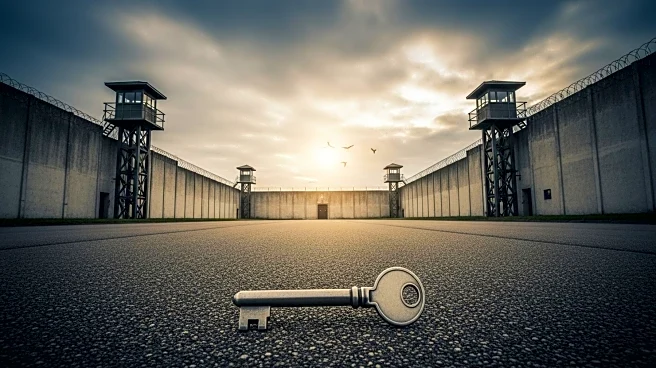What's Happening?
The Department of Homeland Security has chosen the Louisiana State Penitentiary, known as Angola, to house immigration detainees. Secretary Kristi Noem stated that the facility was selected to encourage self-deportation among those in the U.S. illegally. Angola, a notorious maximum-security prison, will host some of the 'worst of the worst' ICE detainees. Currently, 51 detainees are housed there, with expectations to increase to over 400 as President Trump continues efforts to remove individuals suspected of illegal entry. The facility, surrounded by barbed wire and guarded towers, is intended to hold detainees separately from the general prison population.
Why It's Important?
The decision to use Angola for immigration detainees highlights the Trump administration's tough stance on immigration. The facility's reputation for harsh conditions may serve as a deterrent, potentially impacting immigration patterns and policies. Critics argue that housing detainees in such a facility raises human rights concerns and could violate constitutional protections. The move is part of a broader $45 billion expansion of immigration detention centers, aiming to detain over 100,000 individuals. This development could affect immigration enforcement practices and provoke responses from advocacy groups and legal entities.
What's Next?
As the facility reaches capacity, further scrutiny from human rights organizations and legal challenges may arise. The administration's expansion of detention centers will likely continue, with new facilities planned in Indiana and Nebraska. The impact on immigration policy and enforcement will be closely monitored, with potential legislative and judicial responses. Advocacy groups may increase efforts to challenge the conditions and legality of detaining individuals in such facilities.
Beyond the Headlines
The use of Angola, with its historical ties to slavery and harsh penal practices, raises ethical questions about the treatment of detainees. The decision reflects broader cultural and political attitudes towards immigration and criminal justice. Long-term implications may include shifts in public perception and policy regarding immigration enforcement and detention practices.









